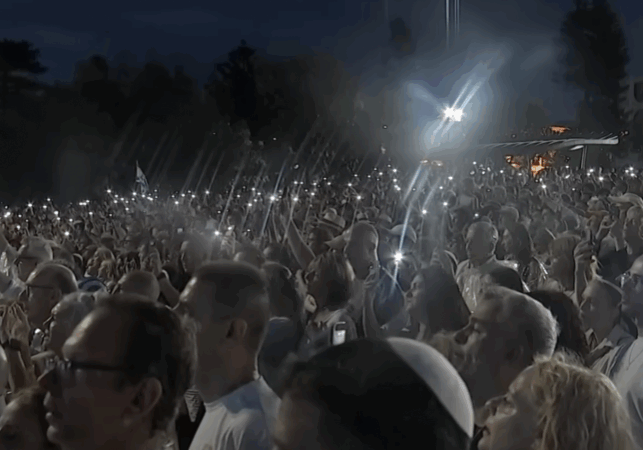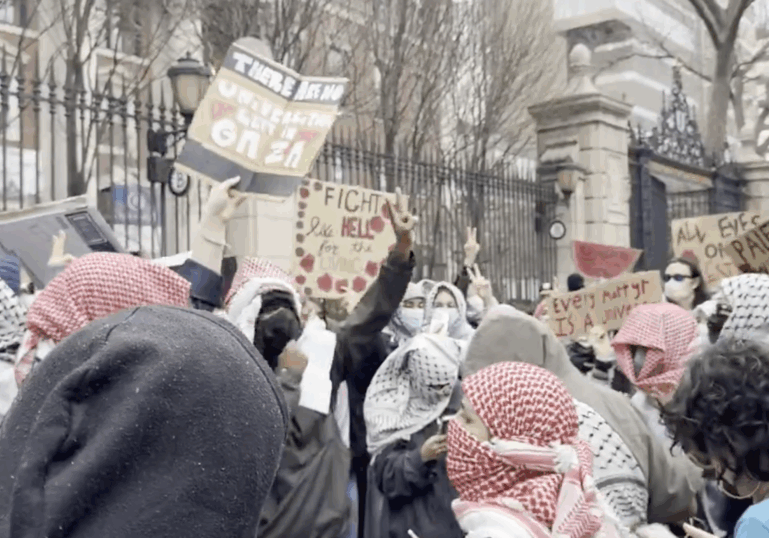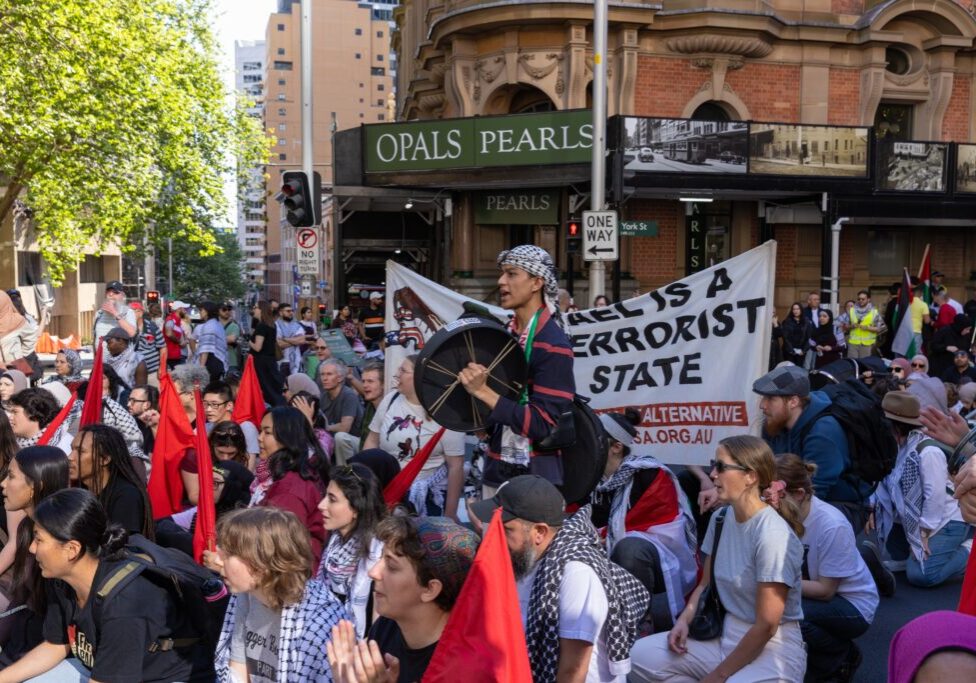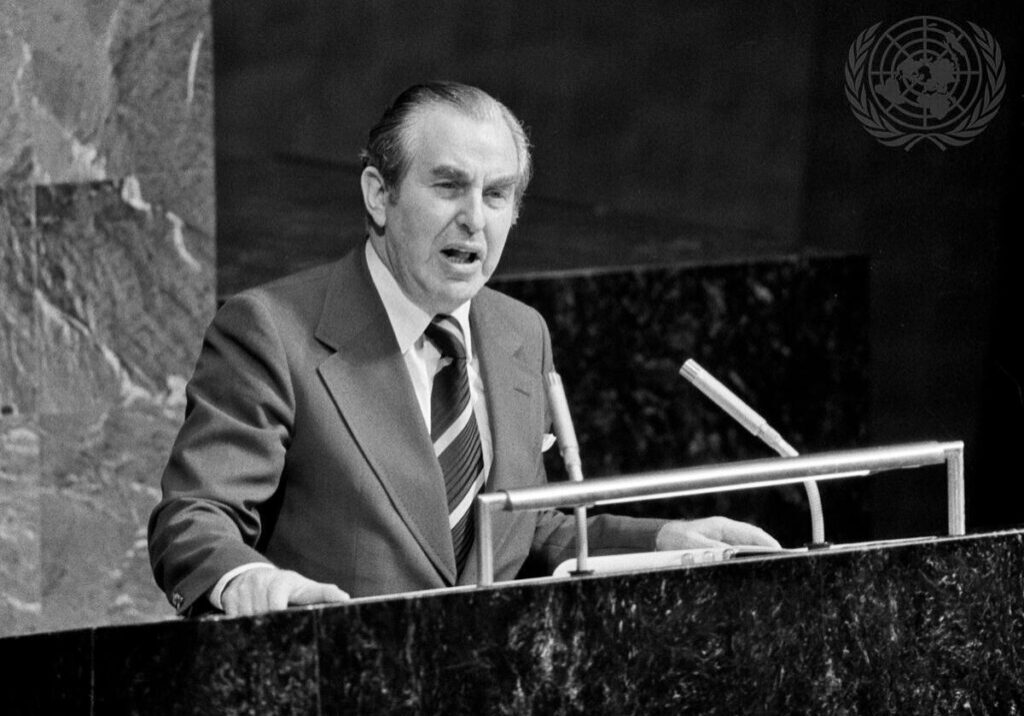Australia/Israel Review
Hate’s Revival
May 1, 2007 | Tzvi Fleischer
WHAT’S NEW ABOUT THE “NEW ANTISEMITISM”?
By Yehonatan Tommer & Tzvi Fleischer
The statistics are damning. Antisemitic incidents are up nearly 50% in one year. They have increased seven-fold since 1989. Moreover, racist assaults on Jewish individuals nearly doubled globally in a single year. Most of the increase came in Western Europe, but Australia was also a major part of this worrying trend – with incidents up 47% over the annual average and the number of violent attacks up more than three-fold. These are the findings of the most recent global study of antisemitism, Antisemitism Worldwide 2006, put out by Tel Aviv University’s Stephen Roth Institute for the Study of Contemporary Antisemitism and Racism. (For the full report, see http://www.tau.ac.il/Anti-Semitism/).
Many experts argue that this massive increase in anti-Jewish racism and violence is not simply part of a new wave of antisemitic incidents, but associated with a new kind of antisemitism. This “New Antisemitism”, combining an increasingly violent demonisation of Israel and Zionism by elements of the international left, and the growing presence in Western societies of radicalised Muslim minority elements, has been widely discussed in recent years.
In view of both the frightening international statistical trend in antisemitism and the international controversy about the nature and origins of the “New Antisemitism”, AIR sought out three of the world’s top experts on the subject. Below are our exclusive interviews with Prof. Dina Porat, who heads the Stephen Roth Institute at Tel Aviv University responsible for the study noted above, Prof. Robert Wistrich, director of the Vidal Sassoon International Centre for the Study of Antisemitism at Hebrew University and author of the classic study Antisemitism: The Longest Hatred, and Prof. Yehuda Bauer, internationally renowned Holocaust scholar and authority on racism and totalitarianism.
Prof. Dina Porat
Interview by Yehonatan Tommer
AIR: Is there a “New Antisemitism” and how do you define it?
Porat: There are those like Prof.Wolfgang Benz who heads an important antisemitism research institute at the Technical University of Berlin, who say that there is really no new antisemitism because the Jewish personality hasn’t changed. In principle he is correct. However, we can say it has a new envelope. First, the geographic focus has changed. We speak of a new antisemitism roughly from October 2000 (with the outbreak of the Second Palestinian Intifada and post Sept. 11). Once, the great initiators were the former Soviet Union, the Arab states and Third World. Today, a new and violent form of antisemitism exists in the countries of Western Europe from Scandinavia in the north to Spain and, less so, to Italy in the south.
Does it include the countries which joined the expanded European Union or just its founding members?
Basically, it’s founding members. It has still not expanded to all of the 27 countries in the European Union. This is because, as a condition of their acceptance, the 12 recently joining countries of Central and Eastern Europe had to demonstrate that they maintained a high level of human rights recognition. Actually it is ironic that in the societies of Western Europe, which approved their qualification for entry to the EU, antisemitism and violence is rampant while the level of antisemitism in Eastern Europe is still below the level current in Western Europe.
Are there other factors that account for the new antisemitism?
Antisemitism is more violent than in the past and [this] is attributed mainly to Muslim immigrant groups. This also impacts in their violence toward the indigenous German population, as well as in France during the mass, countrywide demonstrations in November 2005, where the level of crime has risen dramatically and is directed not only towards Jews, but against French society and its establishment.
Where is the violence directed?
The violence is new and different. Before, some 60% of violent incidents were directed against Jewish cemeteries and synagogues. Today, more than 60% of all attacks are directed against Jewish persons and people identified as Jews. We have reached the point where chief rabbis in Norway, France and Switzerland have instructed their communities to remove all identifying Jewish symbols like a skull cap or the Star of David before going out onto the street. This is definitely a new phenomenon. It is not only how many incidents occur but whether a specific incident is more violent than the previous one. It is not only desecrating a tombstone here and there. The destruction in cemeteries is vicious and total. People walking in the street are mugged at random and children in high school are beaten up by other children.
What indicators do you use to compare the level of antisemitism around the world?
Violence and who exercises it. The perpetrators are not only Muslim immigrants but also the radical right. This has not disappeared and its activities are primarily directed toward destroying Jewish cemeteries and Holocaust memorials. Muslim immigrants attack mainly synagogues and beat up Jewish persons.
Another important indicator is tracking the operation of radical movements and their ideologies, if any. In the age of internet, the physical location of these groups is no longer important. With on-line communication they can video-conference, inform, alert, and consult with each other and act in real time. This creates an enormous problem for state security forces, because it makes it extremely difficult to locate small “leaderless cells” of four or five persons. Their members don’t need a national figure and they don’t have to arrange meetings to plan to hit targets and coordinate action. They work in small groups, arrive at the site, set the bomb and then flee. Now try finding them.
 |
| Attributing Stereotypical Jewish qualities to Israel is one sign of the “new Antisemitism” |
When is criticism of Israel antisemitic?
[Criticism of Israel] does not express itself in acts of violence and is not a part and parcel of Muslim minority behaviour. It belongs more in the realm of the verbal and visual. Criticism is pragmatic and relates to a specific event, on a particular day at a particular hour or to a specific policy. But criticism ceases to be criticism when it attributes Jewish qualities to Israeli military and political behaviour. That’s when the focus is transferred from the Jewish people to its state and certain qualities are attributed to it. Israel is accused of being a murderer and so forth, that’s not criticism. For example, when a Norwegian author refers to Israelis as if they stepped out of the Bible and claims they are motivated by revenge and cruelty, which we had imbibed from the Bible, as well as being child killers, etc.
What is the situation in Australia?
There has been a recent rise in antisemitism in Australia. But the Jewish community is very organised. This is a different society. It is Anglo-Saxon and places enormous stress on law and order. The community is successfully defending itself. Considerable funds from oil-rich countries like Iran, Libya, Saudi Arabia and also Lebanon, Syria and Egypt are pouring into Australia to fund Islamic propaganda. This is a potent weapon. Many are originally published in Arab newspapers in Europe and syndicated in English, French and German and they too are reaching Australia. Antisemitism is clearly a political weapon in the campaign against Israel.
How active are radical left-wing movements today in fostering the new antisemitism?
Not very active. Instead, liberal, idealistic movements bring out masses of demonstrators and publish a lot of material. They are closely affiliated to academic circles and the media and include NGOs advocating human rights. These movements are foremost anti-American and anti-Israel because of Israel’s association with the US. They are also opposed to globalisation and see Jewish wealth in collusion with it. They are anti-colonialist and accuse Israel of post-colonial Zionist imperialism in its occupation of the Palestinians. They do not directly constitute an ideological inspiration for antisemitic violence [but] indirectly, they prepare the groundwork for defamation arguments undermining Israel’s legitimate right to exist and accusing it of Nazi-like behaviour. This is a growing and expanding phenomenon throughout the world.
Prof. Robert Wistrich
Interview by Yehonatan Tommer
AIR: In view of the steadily growing influence of violence and other antisemitic acts against Jews in many countries around the world, how do you see this phenomenon and is there something new in its resurgence?
Wistrich: Taking a broad view, it is clear that since the al-Aqsa Intifada (September 2000) there has been a very significant rise in antisemitic acts of aggression around the world. Some antisemitic acts are linked to the Palestinian issue but many are also rooted in local conditions of hostility, animosity and hatred towards Israel and Zionism – often created by distorted media coverage of the Middle East. There is also a globalisation of antisemitism as a result of new technologies like the internet which are very difficult to censor or control.
A disconnect appears to exist between international forums on antisemitism, the attention that is given to the problem and what is happening on the streets. Can you comment?
Certainly, the growth of antisemitism is the object of much concern today. We need to realise that what is recorded, reported and publicised about antisemitism is however far less than the level of hostility out there. Many attacks on Jews go unreported. Often, Jewish communities are reluctant to over-publicise incidents for fear they may actually encourage further acts of antisemitism. There is a risk in this policy that in not alerting people to the true state of affairs, you weaken their capacity to mobilise against or resist antisemitism.
Several European governments have in recent years responded to the growing incidence of antisemitic attacks on Jews and Jewish communities in their countries. How do you assess that?
There is an interesting paradox here. Most European governments, the OSCE [Organisation of Security and Cooperation in Europe], the US, Canada, Australia, and even the UN (which has been more known historically for its Israel bashing), have in recent times made important declarations condemning antisemitism and seeking ways to contain it. Yet its growth continues. The declarations have little effect partly because they relate more to the old, classical modes of antisemitism coming from the radical right, from racist groups, skinheads and neo-Nazis which are not at the core of the phenomenon, disgusting and despicable though they are. Governments are reluctant or afraid to address the newer forms of antisemitism, anti-Israel and anti-Zionism, especially those adopted by radical Islamic, anti-Western currents in the Muslim community. The infiltration of Islamism into the western Muslim diaspora is alarming and brings with it a serious problem for Jewish communities, which is aggravated by the general mood of appeasement. Only in the US and Australia is there a more robust posture in defending Western core values.
Do you believe that the NGOs have helped to promote and/or excuse antisemitism since the Durban conference in 2001?
The NGOs are part of a broader anti-Zionist masquerade over the past 30 years. Israel has steadily moved to centre stage in the eyes of NGOs and the so-called Human Rights “community” as a systematic violator of international law, infringing Palestinian rights at every possible opportunity. These accusations are institutionalised in ritual condemnations by the United Nations of Israel’s actions in the territories and by reports of groups like Human Rights Watch, Amnesty International and Christian Aid. This feeds the disinvestment and “boycott Israel” movements, which in turn have a spillover effect in promoting antisemitism. The Durban conference was a classic instance of the way in which a perverse discourse on human rights led to a series of seemingly unassailable and self-reinforcing axioms built on the lie that Israel engages in “ethnic cleansing” and is an “apartheid state”. This is ultimately a product of the radical mantras of the 1970s about Zionism as a form of racist discrimination, apartheid and colonialism. Then it was still a marginal discourse – now it is mainstream but no less false and pernicious.
What is your view about Jewish anti-Zionists? How damaging do you think their activities are today?
Jewish anti-Zionism had a long and respectable history before 1948. It seemed for a time after the foundation of Israel that it would fade into irrelevance but now it has made a comeback, disproportionately highlighted by prestigious media in the US and the UK. Jewish intellectuals who oppose Israel today are often extremely militant in promoting the mendacious claim that Israel is a racist state and defaming Zionism. Whether in Israel or in the Diaspora they do a lot of damage. But I am very critical of the Jewish professors in universities around the world who do not challenge or expose the lies which are being spread. Why are they so passive? This is a battle of ideas and we have to produce compelling arguments. That is what I try to do.
Do you see a climate of indifference towards manifestations of antisemitism in the Arab world and if so, what will the likely outcome of this be?
Certainly a climate of appeasement and indifference exists in the West toward Arab racism, jihad and the brazen, genocidal form of antisemitism that exists in Iran and throughout the Arab world, including the Palestinian Authority. Iran even combines explicit threats to use a future nuclear capability to annihilate Israel with open Holocaust denial. Countries like Germany, Italy and France, not to mention Russia and China, have big economic interests in Iran, and none of them are likely to sacrifice any of this for Israel. So they have to be convinced the danger directly affects them – which it certainly does. The analogies with the 1930s are crystal clear. Iran must be stopped now. For Israel, this is undoubtedly a crucial existential issue. Our political leadership is unfortunately weak but I believe in our future and in the ability of Israel and the West to prevail.
Prof. Yehuda Bauer
Interview by Tzvi Fleischer
AIR: Can you tell us a little bit about the Holocaust Education Project you are currently working on and Australia’s hoped for participation?
BAUER: I suppose you mean the International Taskforce. That was a body founded in 1997 by the then Swedish prime minister and consisted of three countries – Sweden, the United States and the United Kingdom. And then others joined as time went on.
I was, from the beginning, the academic adviser, representing continuity because diplomats change. It’s an inter-governmental group. In other words, politicians and diplomats who provide a political umbrella for Holocaust education and remembrance and research.
And it works as the only inter-governmental organisation I know of on a consensual basis. There are never any votes. One discusses, which with 24 member governments is not always such an easy thing, but we try and a number of governments are standing in line to join.
And last December, [2005] we had a meeting with the Australian Ambassador in Budapest – Hungary was the chair country – and he announced that Australia was interested in joining and we exchanged some views about it and I hope it will come off. I was here three years ago and I was then promised that the Australians would join the taskforce, but it hasn’t happened until now. Hopefully, it will.
What is the relationship between Holocaust education along with your intergovernmental taskforce and the problem of the new antisemitism which people are talking about today? Is there a role for the one in combating the other or do you see them as totally separate?
One of the purposes of the taskforce as defined in its basic declaration is to fight against antisemitism. The problem is that in the [taskforce] countries – we only have democratic countries – there is no government that supports antisemitism. This is a social issue. The centre of European antisemitism today is the United Kingdom quite clearly. Not France, not any other country, but Britain. But it’s not a governmental issue, the political parties are certainly not antisemitic.
But in segments of the intellectuals, in some of the Muslim minority, the anti-Israeli attitude flaps over, so to speak, into antisemitism very easily. Because once these people say that the establishment of Israel was a mistake, a mistake has to be corrected and in the world of today, that is possible only by military force that would most likely do away with most of Israel’s Jews. So it’s a genocidal program – this is not what they intend to say but this is a logical conclusion of what they are saying.
So, yes, we try to counter that.
Your colleague Prof. Wistrich suggested that there is an irony or paradox going on where antisemitism has never been so disreputable on the surface and there is an extensive international NGO community dealing with issues of countering antisemitism. But at the same time there is a receptivity, in large parts of the NGO international community to the new antisemitism which they of course would deny is antisemitic. Do you agree with him?
I think he’s right, especially when he nuances it in this way. It’s not a black and white situation. I work together with some NGOs and they are as far away from any type of antisemitism that you can possibly imagine but then there are others who are indeed favouring positions and opinions that lead to antisemitism.
You see Western antisemitism is not new. This concept of “New Antisemitism” is, I think, quite false. It is the old pre-Hitler antisemitism that utilises occasions to come to the fore when something triggers [it]. Now it is the Israeli situation. If tomorrow there was suddenly a change in the situation in the Middle East and serious negotiations started between Israel and the Palestinians ending with even a temporary compromise for a number of years, that would mean, I am quite sure there would be a decline in antisemitism in the West because the trigger is gone.
But the antisemitism would not disappear, it would still be there and there would then be another trigger. It’s a very slow process to deal with, latent antisemitism.
Antisemitism is not a prejudice. Antisemitism is a cultural phenomenon and cultural phenomena take a long time to change, to overcome.
There is a commonly discussed connection at the moment between the antisemitic imagery of the Muslim Arab world and what’s happening to some extent in Europe where people are reimporting or are sympathetic to arguments coming out of the Arab world that seem to be rooted in classical antisemitism. Do you think that some Western intellectuals are basically susceptible to Islamic totalitarianism or form a sympathy for it?
Most certainly.
And what more can be done to stop the threat of Islamic or Middle Eastern antisemitism returning to the West?
It’s not Middle Eastern. It’s radical Islam, which is not an Arab, or necessarily an Arab phenomenon. Some of the ideologues of radical Islam come from places quite outside the Arab Middle East – Pakistan, Dakar, Indonesia and so on.
These people are the result of, as Bernard Lewis put it brilliantly, frustration and despair. Not economic despair, although that also comes into it as one of the factors. And radical Islam is feeding on the feeling that the West, especially the United States, are recolonising the Muslim world in a new way and there’s a tremendous opposition to that.
Radical Islamic ideology stems from 1928 when the Muslim Brotherhood was founded. There are some brilliant intellectuals who defined radical Islam – Abdullah Azzam, for instance. One of them who is much too clever to be caught ideologically is Yusuf Qaradawi in Qatar. And these people want to control the world. This is another ideology like National Socialism and Soviet Communism that wants to control the world.
The first people they attack are not the Jews. The first people they attack are the Muslims. Not only the government but anyone who does not agree with their form of Islam. So it is not surprising that an inchoate but growing group of devout Muslims who are anti-radical are rising in different parts of the Muslim world and it is only through them that one can combat radical antisemitism. The West can’t do that. It is incapable of doing that because they won’t listen to what a Western person will say. They might listen to something that anti-radical Muslims might say.
How do you prevent the feeding into European Muslim minorities of this kind of radicalism?
There is no simple answer to that. Integration by compromise into European society is one way. The Germans are doing it and it’s not unsuccessful, it may succeed. The French failed completely and they are retrying now. There are other countries that have Muslim minorities. In Sweden they have stopped the spread of radical Islam to a certain point by integrating, not just economically although that is important, but culturally and intellectually by basically saying “you are part of our society provided you accept certain ground rules.”
Another [technique], which the West isn’t doing but should be, is a massive propaganda in the languages of the Muslim world done by Muslims, not Westerners. Ideological propaganda, because radical Islam is an ideology before it becomes a terrorist movement.
I want to ask you about the phenomenon of Jews who are sympathetic to anti-Zionist views – both Jewish leftists and the Neturei Karta [an ultra-orthodox sect] who attended the Iran Holocaust deniers conference. Is this a new phenomenon and why do you think it occurs?
Jews who identified with the enemies of the Jews have existed since ancient times. It’s typical of a minority culture that part of that minority, in order to escape from a situation, will identify with the foreigners – in different forms of course. I mean you can’t compare left-wing intellectual Jews in Western countries with the comical figures that attended the Teheran conference – they are two completely different situations. And we know from the last 100 years or so that brilliant Jewish communist intellectuals opposed not just Zionism but opposed the very idea of a Jewish people. It is nothing new.
The line that is taken now is simply the same trigger. There’s a Jewish state, it acts in ways that are indeed, and I quite agree, very objectionable, but there are reasons for that, which of course these people do not explain and it’s not the only side that does things that should not be done.
The other side is doing at least as much if not more. It’s a question of finding compromises between groups that have legitimate complaints against each other. But these people don’t think in those ways, they think in terms of black and white. And they identify anything that comes from a Jewish source as black.
![]()
Tags: Anti-Zionism, Indonesia






